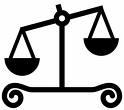While there are some bedrock ethical principles that should remain immutable, the field needs some breathing space to accommodate to societal changes and new research findings. Analogously, the Constitution prohibits cruel and unusual punishment, but the definition of this evolves, so that today’s court may decide a punishment issue differently from its predecessors. Similarly, it is possible that an issue deemed ethical today, might be considered unethical tomorrow.
Medical professionals confront ethical tension regularly. These situations can be tough to navigate through as a physician weighs one person’s rights against another. If a doctor ‘modifies’ a diagnostic code so that an insurance company will pay the bill instead of the unemployed factory worker, has an ethical foul been committed? Is dispensing free drug samples, beloved by patients, ethical as this increases costs and raises drug prices for other patients? Is it ethical for a medical specialist to withhold from his patient that his primary care physician is mediocre and there are superior alternatives available? If a sick patient won’t pay his bills, under what circumstances, if any, can the physician ethically terminate the relationship?
There have been physicians present during enhanced interrogation events (read: torture) ostensibly to guide interrogators against causing permanent serious injury or worse. Perhaps, these physicians have rationalized their role to be protectors of detainees, but this is nonsensical. This role is so far removed from the medical profession’s healing mission, that it deserves no debate. Indeed, this practice tortures the medical profession that is under oath to heal and comfort the sick, not to provide flimsy cover to ‘interrogators’.
I am not opining here on whether protecting our national security requires enhanced interrogation techniques. I am stating that the medical profession should not participate in the sessions. As to whether physicians and psychologists should contribute to developing ‘interrogation’ techniques to ensure that they conform to our nation’s laws and values is grist for a true debate. Even if this preparatory training function were to be deemed ethical, I would never participate in it.
Physicians have been participating in force-feeding ‘detainees’ in the Guantanamo Bay detention camp. It is wrong and unethical for a physician to have a role in force-feeding an individual who has the mental capacity to refuse medical care. I condemn this practice which tarnishes my profession and undermines the ethical scaffolding that supports and guides it. The World Medical Association, the American Medical Association and the British Medical Association have each firmly denounced force-feeding. Our military counters that the practice is legal and proper. If force-feeding is ethical, then why shouldn’t we extend the practice into our hospitals and nursing homes?
President Obama has stated, “I don’t want these individuals to die”, with regard to the Guantanamo detainees. If our Commander-in-Chief wants to force food down someone’s throat, he is free to give the order. But no doctor or nurse should carry it out.
First published in The Plain Dealer on 9/6/13.

